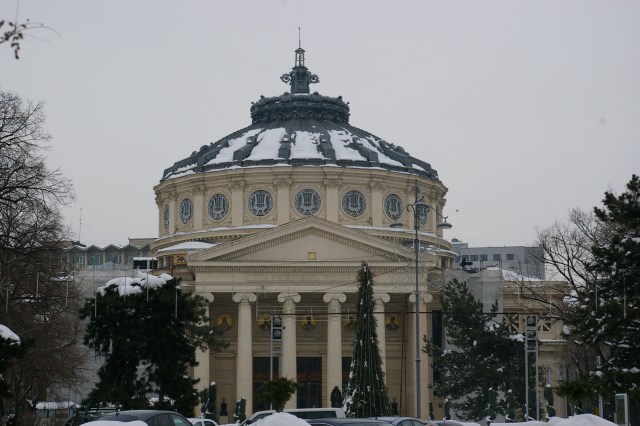Bucharest is the capital of Romania and was the first city that we visited during our trip to Romania before heading to Brasov. We were there in winter and the streets were covered with snow, but we still found it interesting. Bucharest became the capital of Romania in 1862 and was, at one time, considered to be “little Paris” because of its architecture and culture, but due to the wars, much of the architecture was destroyed. Although many of buildings have been restored, the city has evolved over time.





Like most historic cities, walking the streets of the old town area is certainly a worthwhile experience. You will find many restaurants, some old churches and buildings, as well as some modern shops and adult stores. Although there is a definite mix of utilitarian buildings as well as historic buildings, we definitely saw several very interesting buildings. It is certainly worth visiting the Galeria de Arta Romaneasca and the Central de la Universidad de Bucharest, with its statue of Carol I on horseback, has wonderful architectural features. The area is also known as Revolution Square and there is an interesting obelisk that is a monument for the anti-communist revolution of 1989.





There are several old churches that you can visit as well that are very interesting. One of the most interesting is the Church of Stavropoleos Monastery in old town Bucharest. With interesting murals inside on the walls and ceilings, its architecture is done in the Byzantine tradition. It is certainly quite a contrast to the buildings that surround it. We went to a couple of restaurants and found the people to be very friendly, but be sure to always have small change with you as the waiters are likely to tell you that they don’t have change in hopes of getting you to pay more than the actual price. We were fortunate enough to have musicians playing local, folk music at one of the restaurants that we visited.




In general, we found Bucharest to be a city of contrasts. It was our first experience in an Eastern European country and it was very fascinating. Bucharest is the sixth larges city in the European Union with almost 2.5 million residents, so it can certainly be busy. After leaving Bucharest, we went to Transylvania and the city of Brasov, which was quite different than the capital city and something that we would highly recommend. We will be visiting the neighboring country of Hungary and the city of Budapest in a couple of months and are anxious to compare our different experiences.







